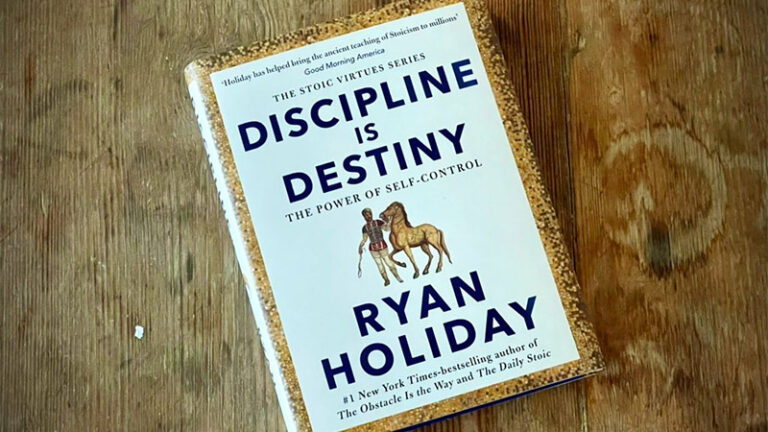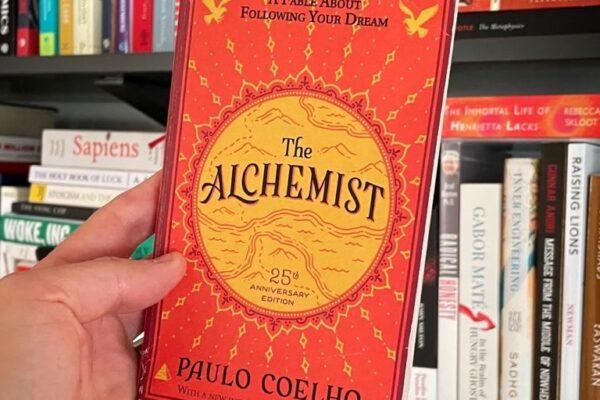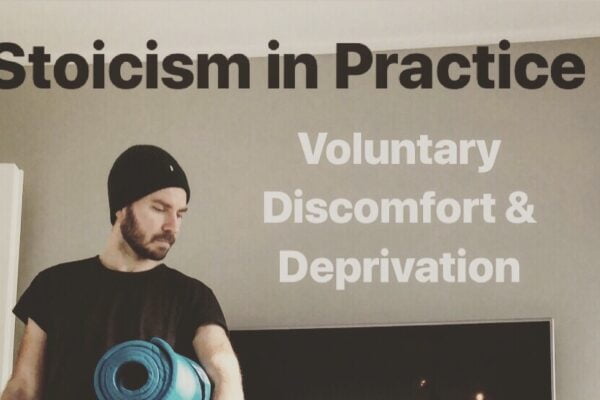“Most powerful is he who has himself in his own power.” This advice, imparted by the Stoic philosopher Seneca, to the Roman leaders he counseled, raises important questions: Are we truly free if we cannot control our impulses or find the energy to fulfill our responsibilities? Conversely, can we consider ourselves free if our ambition consumes us to the point of neglecting those close to us?
In this review I will share my thoughts and key takeaways from Ryan Holiday’s book, “Discipline is Destiny.”
About the Book
“Discipline is Destiny” is the second book in Ryan Holiday’s Stoic Virtues Series, which explores the cardinal virtues of Courage, Temperance, Justice, and Wisdom. This particular book serves as a guide to self-mastery and temperance, forming the foundation upon which the other Stoic virtues depend.
Drawing examples from prominent figures in history, Holiday illustrates how self-mastery sets individuals apart and has the power to change the world. Conversely, the lack of discipline can lead to ruin and downfall.
4 Key Takeaways form Discipline is Destiny
1. The Comfort Trap
In modern life, we often build walls to shield ourselves from anything unpleasant, unwittingly becoming overly dependent on comfort. The convenience of our modern world, with its focus on instant gratification, can diminish our ability to endure hardship. Not only do we have everything we need, but everything we could ever wish for: on demand, 24/7: “The finest ingredients, cooked by the best restaurant, delivered to our door in minutes at the slightest sign of hunger.” We become fearful of losing our comforts and trapped in a cycle of dependency.
The Stoics teach us the importance of seeking discomfort voluntarily. By regularly practicing toughness and embracing discomfort, we can overcome our fear of it. Gandhi’s life exemplifies this principle. During his time as a law student, he lived a spartan existence, preparing himself for the challenges that lay ahead. When he was later thrown in jail, his ability to thrive with little became his edge. There was nothing his captors could take from him that he had not already practiced being without.
2. Attack the Dawn
Toni Morrison’s journey as a writer offers a compelling example of utilizing the early morning hours. Balancing her role as a single working mother of two young boys and her demanding job as an editor for Random House, Morrison found solace and creative inspiration in the precious moments before dawn. It was during this quiet time, before her boys uttered the word “Mama” and the responsibilities of the day took hold, that she could fully immerse herself in her writing. She did this for years and it was the key to becoming a great writer.
This practice of embracing the early morning hours is not exclusive to writers but has been adopted by countless driven individuals throughout history. Use the early morning hours to get the most important task out of the way and build the future you want.
3. Temperance and ambition
Temperance extends beyond avoiding laziness and being a slave to our passions. It also guards us against being consumed by our ambitions. After all, what is the point of ceaselessly striving and mourning every setback if we cannot enjoy the journey? Finding balance is essential. Life is meant to be lived, so let us not be too hard on ourselves. While we strive for improvement, we must also grant ourselves forgiveness when we fall short. It is crucial to recognize that we need breaks, adequate sleep, a social life, and quality time with our families.
4. Temperance is a Lifelong Practice:
The individuals portrayed in Ryan Holiday’s “Discipline is Destiny” showcase remarkable temperance and self-discipline. Figures such as Theodore Roosevelt, Queen Elizabeth, Cato, and Churchill exemplify the lifelong practice of temperance. However, it is important to note that even most remarkable individuals experienced periods where they faltered. Ryan Holiday emphasizes this point, highlighting that they, too, had moments of weakness and fell back into bad habits.
The key takeaway from this book is that temperance and self-mastery are lifelong practices. We will inevitably miss the mark and stumble along the way. However, what matters is our ability to get back up, reflect on our shortcomings, and continue striving for improvement. Temperance is a process, and with consistent practice, our chances of becoming the person we aspire to be in critical moments will increase.
Video Review: Discipline is Destiny
Book Verdict:
I must admit that I previously criticized Ryan Holiday’s book, “Courage is Calling.” However, in “Discipline is Destiny,” all faults are forgiven. This has become one of my favorite books this year, as it served as a powerful reminder that I have veered off track in various aspects of my life.
As part of my commitment to living consciously and purposefully, I have conducted numerous experiments over the years to determine the best way to live. I have explored questions like the value of alcohol versus the consequences of a hangover, the importance of sleep, the benefits of meditation for well-being, and what constitutes a meaningful philosophy of life. While I have found many answers, I have struggled to consistently live in alignment with the best practices I’ve discovered. Ryan Holiday’s book arrived at the perfect time for me, highlighting areas where I fall short and where I need more discipline.
I thoroughly enjoyed the stories of extraordinary individuals throughout history that are woven throughout the book. These stories have inspired me to continue my pursuit of knowledge. As a result, I have added several biographies to my reading list.
If you find yourself struggling in certain areas of life, “Discipline is Destiny” is an excellent resource. It has the power to kick-start a new chapter in your life. Accessible and engaging, this book will challenge your priorities and inspire personal growth.
⭐️ ⭐️ ⭐️ ⭐️ out of 5
Find more great books to read on the Great Books List
Video Reviews every week on YouTube , and support the BookLab mission on Patreon




